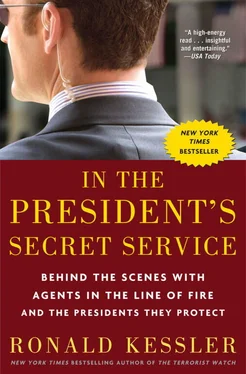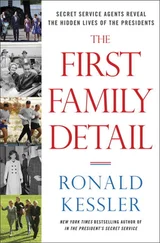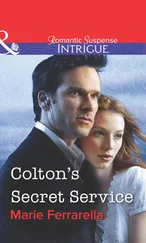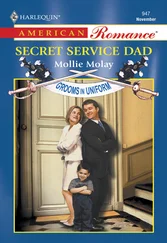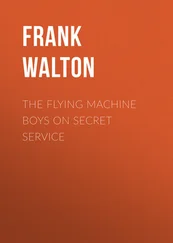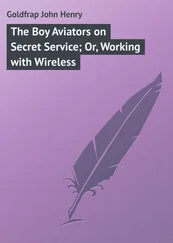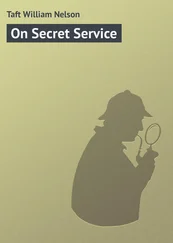Before the president walks into a hotel room, a Secret Service countermeasures team sweeps it for radioactivity and electronic bugging and video devices. Permanent hotel residents pose a special problem. Agents ask them to move temporarily to other rooms in the same hotel. Hotels usually offer their residents better accommodations free of charge. But some refuse to take them.
“If they say, ‘We are absolutely not going,’ then we will not bring the president,” an agent says.
Like the rest of us, presidents hate the thought of getting stuck in elevators, so the Secret Service pays a local elevator repair company a daily fee to station a service person in a hotel where the president is staying.
The Secret Service checks on the backgrounds of employees preparing food for the president. If they have been convicted of an assault or drug violation, agents will ask the establishment to give the employees a day off. To ensure that no one slips any poison into food served the president at a hotel or restaurant, an agent watches the preparation, randomly selects a prepared dish, and watches as the dish is served. Employees who have been cleared are given color-coded pins to wear. On overseas trips, navy stewards might prepare dishes for the president. With food prepared at the White House, the Secret Service does not get directly involved.
“You can’t watch everything,” a Secret Service agent says. “But the majority of stuff is checked. We have lists of the suppliers. We check the employees once and go back randomly and check them again to see if anyone has been added.”
10

Deacon
IF THE SECRET Service considered Richard Nixon the strangest modern president, Jimmy Carter was known as the least likeable. If the true measure of a man is how he treats the little people, Carter flunked the test. Inside the White House, Carter treated with contempt the little people who helped and protected him.
“When Carter first came there, he didn’t want the police officers and agents looking at him or speaking to him when he went to the office,” says Nelson Pierce, an assistant White House usher. “He didn’t want them to pay attention to him going by. I never could understand why. He was not going to the Oval Office without shoes or a robe.”
“We never spoke unless spoken to,” says Fred Walzel, who was chief of the White House branch of the Secret Service Uniformed Division. “Carter complained that he didn’t want them [the officers] to say hello.”
For three and a half years, agent John Piasecky was on Carter’s detail—including seven months of driving him in the presidential limousine—and Carter never spoke to him, he says. At the same time, Carter tried to project an image of himself as man of the people by carrying his own luggage when traveling. But that was often for show. When he was a candidate in 1976, Carter would carry his own bags when the press was around but ask the Secret Service to carry them the rest of the time.
“Carter would have us carry his luggage from the trunk to the airport,” says former Secret Service agent John F. Collins. “But that is not our job, and we finally stopped doing it.” On one occasion, says Collins, “We opened the trunk and shut it, leaving his luggage in the trunk. He was without clothes for two days.”
As president, Carter engaged in more ruses involving his luggage.
“When he was traveling, he would get on the helicopter and fly to Air Force One at Andrews Air Force Base,” says former Secret Service agent Clifford R. Baranowski. “He would roll up his sleeves and carry his bag over his shoulder, but it was empty. He wanted people to think he was carrying his own bag.”
“Carter made a big show about taking a hang-up carry-on out of the trunk of the limo when he’d go someplace, and there was nothing in it,” says another agent who was on his detail. “It was empty; it was just all show.”
On the first Christmas morning after his election, Carter strode out of the front door of his home in Plains, Georgia, to get the newspaper. Instead of saying “Merry Christmas” to the Secret Service agent standing post, he ignored him. After church and a Christmas brunch, Carter’s wife, Rosalynn, put some leftovers out for their Siamese cat. According to agent John Collins, the detail had befriended a stray Jack Russell terrier and given him the code name Dolphin. “Dolphin” conformed with the Secret Service code names beginning with D assigned to the Carters.
Seeing the food, Dolphin began gobbling it up, pushing away the cat. According to another agent who was there, Carter got a bow saw—the kind that is used to saw down trees—and actually tried to attack the dog with the saw.
“Carter got the bow saw off a woodpile near the family room patio and in full view of his family—including his mother, Miss Lillian—tried to kill the dog,” says the agent who was there. “Dolphin, who was much faster than Carter, playfully dodged the president-elect’s efforts. Carter then called the detail leader and demanded that the dog be removed from Plains. The Secret Service gave the dog to the press corps covering Carter.”
Incredibly, Carter refused to carry out the biggest responsibility a president has—to be available to take action in case of nuclear attack. When he went on vacation, “Carter did not want the nuclear football at Plains,” a Secret Service agent says. “There was no place to stay in Plains. The military wanted a trailer there. He didn’t want that. So the military aide who carries the football had to stay in Americus,” a fifteen minute drive from Carter’s home.
Because of the agreed-upon protocols, in the event of a nuclear attack, Carter could not have launched a counterattack by calling the aide in Americus. By the time the military aide drove to Carter’s home, the United States would have been within five minutes of being wiped out by nuclear-tipped missiles.
“He would have had to drive ten miles,” an agent says. “Carter didn’t want anyone bothering him on his property. He wanted his privacy. He was really different.”
Through his lawyer, Terrence B. Adamson, Carter denied that he refused to keep the nuclear football near him in Plains and that he instructed uniformed officers not to say hello to him in the White House. But Bill Gulley who, as director of the White House Military Office, was in charge of the operation, confirmed that Carter refused to let the military aide stay near his residence. “We tried to put a trailer in Plains near the residence for the doctor [who travels with the president] and the aide with the football,” Gulley says. “But Carter wouldn’t permit that. Carter didn’t care at all.”
Carter—code-named Deacon—was moody and mistrustful.
“When he was in a bad mood, you didn’t want to bring him anything,” a former Secret Service agent says. “It was this hunkered-down attitude: ‘I’m running the show’ It was as if he didn’t trust anyone around him. He had that big smile, but when he was in the White House, it was a different story.”
“The only time I saw a smile on Carter’s face was when the cameras were going,” says former agent George Schmalhofer, who was periodically on his detail.
“Carter said, ‘I’m in charge,’” a former Secret Service agent says. “‘Everything is my way’ He tried to micromanage everything. You had to go to him about playing on the tennis court. It was ridiculous.”
One day, Carter noticed water gushing out of a grate outside the White House.
“It was the emergency generating system,” says William Cuff, the assistant chief of the White House Military Office. “Carter got interested in that and micromanaged it. He would zoom in on an area and manage the hell out of it. He asked questions of the chief usher every day: ‘How much does this cost? Which part is needed? When is it coming? Which bolt ties to which flange?’”
Читать дальше
